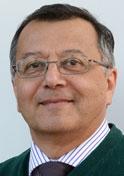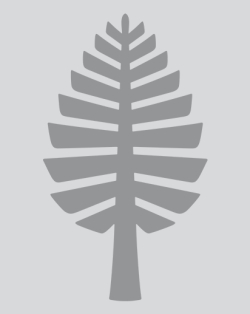Summer 2026
Winter 2027
The application period for this program has passed.

Founded in 1883 as Auckland University College, the University of Auckland is New Zealand's largest university with over 40,000 students on five campuses, and the country's most internationally recognized university. Located in the center of New Zealand's largest city, the university consists of eight faculties (Arts, Sciences, Education, Engineering, Law, Business, Creative Arts and Industry, Medicine) and numerous research institutes and centers offering some 80 degree programs, including a number with a unique New Zealand focus, including Māori Studies, Pacific Studies, Wine Science, Environmental Science; and top-ranked subjects like Archaeology and Education.
Dartmouth College and the University of Auckland share common educational interests and each institution has particular strengths. Specifically, we note areas of synergy in the fields of Anthropology; Indigenous /Native American Studies; Ecology, Evolution, Environment, and Society; Global, Public, and Population Health; Language Endangerment and Revitalization; Engineering; and Public Policy, including Peace and Conflict Studies.
Dartmouth undergraduate students are eligible to attend the University of Auckland on exchange during either Semester 1 (mid-February through end of June) or Semester 2 (early July – mid-November). Dartmouth students participating in the exchange during Auckland's Semester 1 will enroll as exchange students for the Dartmouth winter term and will need to plan to take a leave term for the spring term and possibly the summer term. Dartmouth students participating in the exchange during Auckland's Semester 2 will enroll as exchange students for the Dartmouth summer term and will need to plan to take a leave term for the fall term.
Upon completion of the exchange, the exchange coordinator at the host institution will forward the transcript to the Office of the Registrar, Dartmouth College. Future transcripts of exchange program grades must be obtained by the student from the exchange institution.
The application process for this program is competitive, every year about 2 students are selected for this program. Students first apply through the Guarini Institute by the February 1st application deadline. After February 1st, faculty from the Thayer School of Engineering will review applications and make acceptance decisions. Students will be notified of their acceptance decisions on March 1st.
Successful applicants who are accepted and commit to the program will receive a nomination from the Guarini Institute. Applying for an exchange program involves two steps: if you receive a nomination from the Guarini Institute you will also need to complete the host institution's application, which is administered and reviewed by the host institution. The host institution makes the final acceptance decision. The Guarini Institute will provide further instructions on this second step to students after they are accepted and commit to a program.
For more information about applying for this program, see our webpage on How to Apply & our FAQs under section 2 (How to Apply: Application), or contact the Guarini Institute.
 Benoit Cushman-Roisin Professor of Engineering Sciences
Benoit Cushman-Roisin Professor of Engineering Sciences Participants on this exchange enroll as full time students and choose from available courses they are qualified for at the University of Auckland. Students normally select 3-4 courses to study per semester. Students can transfer back courses to count toward their Dartmouth diploma.
Minimum cumulative grade point average of 3.0
Third (or possibly fourth) year engineering sciences majors (or modified majors) by the time they enter the exchange program.
The University of Auckland's main campus, City Campus, is right in the heart of Auckland, within walking distance of all the main cultural, entertainment and commercial hubs. Harbour views and Albert Park add to the appeal. The campus has a full range of amenities including cafes, health service, libraries, and a recreation centre.
The University of Auckland will provide appropriate counselling and other assistance to Dartmouth exchange students, including assisting them in finding appropriate housing in residence halls, apartments, or private homes / homestays for the period of their study at the University of Auckland, and assist them in securing such accommodations to the fullest extent possible. Accomodations vary from catered to self-catered options. More information on accomodations and student life can be found on the University of Auckland's website.
We encourage students to engage with their SAS advisors and program faculty/staff during the exploratory, pre-application phase to discuss how disability-related accommodations and access needs can be supported in an off-campus environment. If you currently have approved accommodations at Hanover, SAS will review them to determine which can be provided at your off-campus location and what alternatives may be needed. On-campus and off-campus accommodations may differ depending on each program location's resources and accessibility features. We recommend beginning this discussion with SAS as soon as you are accepted and no later than at least one whole quarter before your program start date.
For next steps, review the Off-Campus Program Accommodations page on the SAS website.
Dartmouth students pay tuition and service fees to Dartmouth; room and board fees as well as transportation to and from the program site are the responsibility of the student. Because the exchange is an official program sponsored by the College, Dartmouth students do not need to pay the transfer term fee that the College charges to students who study on outside programs during leave terms.
In order that all qualified Dartmouth undergraduate students may have the opportunity to take part in off-campus programs, the College endeavors to adjust its normal financial aid awards for students already receiving aid. Tuition and expected family contribution for Dartmouth's off-campus programs are the same as for an on-campus term.
All costs, including airfare and spending money, are considered when determining the cost of an off-campus program. Any costs in excess of a typical term in Hanover are met with additional Dartmouth Scholarship Funds. If you have a work expectation for the term, this will be replaced by scholarship funding.
Students are responsible for purchasing their own plane ticket and, in many cases, meals. Often this means that part of the expected family contribution is used towards these costs rather than for tuition. For help sorting out who pays what and how, contacting the Financial Aid office is often advisable.
Financing your program | Financial Aid | Scholarships | Budgeting & Costs
 Christiane Buessard Undergraduate Engineering Program Coordinator
Christiane Buessard Undergraduate Engineering Program Coordinator  Henry Poret Alumni Contact
Henry Poret Alumni Contact